Product Description
Active Hexose Correlated Compound (AHCC) is a natural compound extracted from shiitake mushrooms. It was developed in Japan in 1989, and has since been used to improve the immunity of over 100,000 patients. It has been studied in over 50 human clinical trials.
AHCC has the unique ability to stimulate the immune system, which is important in controlling inflammation and infection and regulating healthy cell growth. Active hexose correlated compound is used alongside chemotherapy treatments in many Japanese hospitals for its
AHCC has the unique ability to stimulate the immune system, which is important in controlling inflammation and infection and regulating healthy cell growth. In many Japanese hospitals active hexose correlated compound is used alongside chemotherapy treatments for its immune supportive effects.
The majority of studies have shown reduced side effects, increased quality of life and improved survival rates. Patients taking AHCC also reported fewer side effects such as nausea, vomiting and hair loss, and improved their body weight and appetite during chemotherapy.
The immune effects are not limited to only cancer and have been applied to microbial infections as well. AOR’s AHCC is a powerful, evidence based option for people that want to support their immune function, combat stubborn infections and for patients undergoing certain types of chemotherapy.
AOR Advantage
AHCC® is a unique antioxidant and immune system modulator. AOR’s AHCC® contains one of the highest doses found on the market with the fewest additional ingredients. The active ingredients of AHCC® include acetylated alpha-glucan for optimal bioavailability.
Main Applications
Immune system support
Healthy inflammatory response
Normal cell production and differentiation
When it comes to health, we all understand the importance of our immune system. Active hexose correlated compound (AHCC) is an oligosaccharide extracted from mushrooms grown in rice bran. It was developed in Japan in 1989 and it has since been used to improve the immunity of over 100 000 patients. AHCC has shown promise for severe immunodeficiencies, for hypertension, to reduce inflammation, to improve the body’s response to stress, in infections, for diabetics and for hepatitis.
AHCC and the Immune System
AHCC is remarkable because it has the ability to stimulate the immune system. Oral supplementation with AHCC increases the production by immune cells of at least two protein messengers. These proteins promote the production of macrophages, T cells and natural killer (NK) cells and improve their ability to destroy abnormal cells. Immune cells are important for health in general but are specifically involved with the control of infection and abnormal cell.
AHCC and Abnormal Cells
Global abnormal cell rates keep rising but most abnormal cells are preventable. Abnormal cell is a disease of the immune system. It is up to our immune system to recognize and destroy abnormal cells. Immunosurveillance (the ability of the immune system to detect and destroy atypical cells before they become harmful) is the pillar of abnormal cell prevention. Indeed, individuals born with immunodeficiencies are 200 times more likely to develop abnormal cell. Hence the great promise of immunotherapies – therapies aimed at enhancing the immune system instead of trying to kill abnormal cells. AHCC was shown effective in several research projects. In one study, AHCC and better nutrition led to a 22% tumor reduction, and 39% tumor stabilization. The combination of AHCC and genistein concentrated polysaccharide (another natural anti-abnormal cell substance) induced apoptosis (the self destruction of unwanted cells). Similarly, supplementation of AHCC with an antioxidant extracted from buckwheat, led to the reduction of skin tumors in test rats. In another study, 6 months of treatment with AHCC (6g/day) led to a partial response in 49.7% of patients and a complete response in 8.8%.
AHCC in Combination with Chemotherapy
Studies using AHCC clearly demonstrated that AHCC safely increases the efficacy of conventional treatments while reducing the frequency of side effects. Patients taking AHCC with chemo or radiation saw their growths shrink and their growth markers decrease more than patients receiving conventional treatments alone. Furthermore, a weakened immune system is one of the most serious side effects of chemotherapy. AHCC helps to preserve immunity at a time when it is crucial to prevent the spread and growth of abnormal cells. It also reduces the toxicity and the side effects associated with chemotherapy. It alleviates hair loss and bone marrow suppression and prevents the elevation of liver enzymes. Patients taking AHCC reported less nausea and vomiting and AHCC improved their body weight and appetite. Unfortunately, at present, there are very few proven strategies to reduce the risk of tumor recurrence among survivors. Because of its effect on NK cells, AHCC supplementation may prove useful for those trying to improve their immune function in order to reduce their risk of recurrence. A prospective cohort study found that patients who had undergone resection of a liver tumor had a significantly longer no recurrence period and an increased overall survival rate when they took AHCC.
AHCC and Immunodeficiency
We have all heard of AIDS. The infection caused by the HIV virus leads to a deficient immune response because the virus slowly incapacitates the immune system. Researchers showed that HIV levels could remain suppressed without drugs if the immune system is functioning adequately. Through its influence on the immune system, AHCC may help preserve immunity in those whose defense system is slowly being infiltrated by viruses. Preliminary trials have given encouraging results.
AHCC and Infection
Infections are caused by the invasion and the multiplication of microorganisms in the body. We carry 500 to 1000 different species of bacteria throughout our body. Adequate immunity is therefore crucial in preventing infection. Several experiments confirmed AHCC’s competence for the control of infections.
AHCC and the Liver
The liver is responsible for over 500 vital functions and can be injured in a multitude of ways. The liver breaks down harmful substances and excretes them in the blood or bile. An excess of toxins can damage the liver. Trials have demonstrated that AHCC protects the liver and improves hepatic function. AHCC was also shown effective for patients with chronic viral hepatitis.
AHCC and Inflammation
Inflammatory conditions are becoming more and more problematic. Arthritis has become the leading cause of disability among adults age 65 and older. It was reported that patients taking AHCC to prevent the recurrence of abnormal growths had significant improvements in rheumatoid arthritis. AHCC was also effective at diminishing inflammation in animal studies. It is thought that AHCC reduces inflammation by modulating the immune system and by improving fat metabolism.
AHCC and Other Health Conditions
Diabetic patients have been shown to respond to AHCC, with reductions of both blood glucose levels and glycated hemoglobin levels. In addition, AHCC appears to be an adaptogen and may help relieve stress, which could alleviate stress-induced hypertension.
Recommended Dosage
AHCC is very safe even in extremely high dosages. For general maintenance take 1 or 2 capsules daily. For more serious immune dysfunction take 2 capsules three times a day or as directed by a qualified health practitioner.
Why AHCC?
We are constantly exposed to bacteria, viruses and other pathological organisms. Everyday, we depend on our immune system to remain healthy. Why is it that when we get sick we direct the treatment on those pathogens and not on improving our ability to fight and prevent disease. The great promise of immunotherapies lies in their ability to stimulate our defense systems. AHCC’s gift at improving immunity has been demonstrated – finally a treatment that focuses on health and not on the disease.
References
Katsuaki Uno, Kenichi Kosuna, Bxiang Sun, Hajimi Fujii, Koji Wakame, Shizuko Chikumaru, George Hosokawa, Yuji Ueda. Active Hexose Correlated Compound (AHCC) Improves Immunological Parameters and Performance Status of Patients with Solid Tumors. Biotherapy 2000; 14(3):303-309
Ikeda H, Old LJ, Schreiber RD. The roles of IFN gamma in protection against tumor development and cancer immunoediting. Cytokine Growth Factor Rev. 2002 Apr;13(2):95-109
Reuters. Report: More than half of U.S. cancer deaths could be prevented-Lifestyle changes would eliminate majority of cases. Washington. March 31, 2005
Dunn GP, Old LJ, Schreiber RD. The immunobiology of cancer immunosurveillance and immunoediting. Immunity. 2004 Aug;21(2):137-48.
Cotran RS, Kumar V, Collins T. Robbins pathologic basis of disease. 6th ed. Toronto: W.B. Saunders Company. 1999.
Hosokawa M. Combination of AHCC and Chemotherapy. Anti-Cancer Drugs, 9, 343-350, 1998
Ahn GH et al. The Clinical Effectiveness of AHCC Treatment in Cancer Patients with Progressive or Metastasized Cancers: An Observation of Immune Parameters. AHCC Research Association 8th Symposium, Sapporo, Japan, Aug. 2000
Matsui Y, Uhara J, Satoi S, Kaibori M, Yamada H, Kitade H, Imamura A, Takai S, Kawaguchi Y, Kwon A-H and Kamiyama Y. Improved prognosis of postoperative hepatocellular carcinoma patients when treated with functional foods: a prospective cohort study. Journal of Hepatology 2002;37(1):78-86.
Uno K, Chikumaru S, Hosokawa T. Cancer immunotherapy by a phyto-polysaccharide (AHCC): its effects and strategy. AHCC Research Association 8th Symposium, Sapporo, Japan, Aug. 2000
Ishiguro A. Anti-Carcinogenic Activity of AHCC and PMP. The 2nd Annual Meeting of the Japanese Society for Alternative Medicine & Treatment. Oct. 1999.
K. Matsushita et al., Combination therapy of active hexose correlated compound (AHCC) plus UFT significantly reduces the metastasis of rat mammary carcinoma, Anti-Cancer Drugs, 343-350, Sep 1998.
Prasad KN. Multiple dietary antioxidants enhance the efficacy of standard and experimental cancer therapies and decrease their toxicity. Integr Cancer Ther. 2004 Dec;3(4):310-22.
Imai K, Matsuyama S, Miyake S, Suga K, Nakachi K. Natural cytotoxic activity of peripheral-blood lymphocytes and cancer incidence: an 11-year follow-up study of a general population. Lancet. 2000 Nov 25;356(9244):1795-9.
Matsui Y, Uhara J, Satoi S, Kaibori M, Yamada H, Kitade H, Imamura A, Takai S, Kawaguchi Y, Kwon AH, Kamiyama Y. Improved prognosis of postoperative hepatocellular carcinoma patients when treated with functional foods: a prospective cohort study. J Hepatol. 2002 Jul;37(1):78-86.
Rosenberg ES, et al. Immune control of HIV-1 after early treatment of acute infection. Nature 407, 523 – 526 (28 September 2000)
Ishibashi H, et al. Prophylactic Efficacy of a Basidiomycetes Preparation AHCC against Lethal Opportunistic Infections in Mice. Yakugaku Zasshi, 120(8),715-719. 2000
Sun B, Wakame K, Mukoda T, Toyoshima A, Kanazawa and Kosuna K. Preventive Effect of AHCC on Carbon Tetrachloride Induced Liver Injury in Mice. Natural Medicine 51(4), 310-315. 1997
Wakame K. Protective Effects of Active Hexose Correlated Compound (AHCC) on the Onset of Diabetes Induced by Streptozotocin in the Rat. Biomedical Research 20 (3) 145-152. 1999
Wang S et al. Preventive Effects of Active Hexose Correlated Compound (AHCC) on Oxidative Stress Induced by Ferric Nitrilotriacetate in the Rat. Dokkyo Journal of Medical Sciences 28(2-3). 745-752. 2001
Click here for more information: Manufacturer’s Website

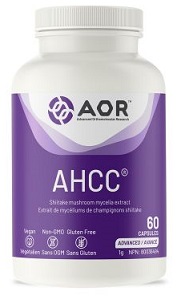
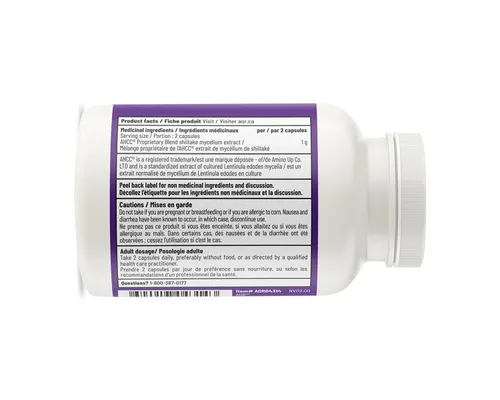
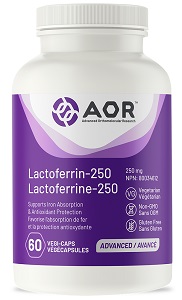
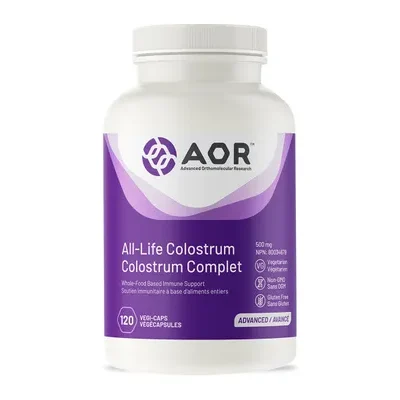
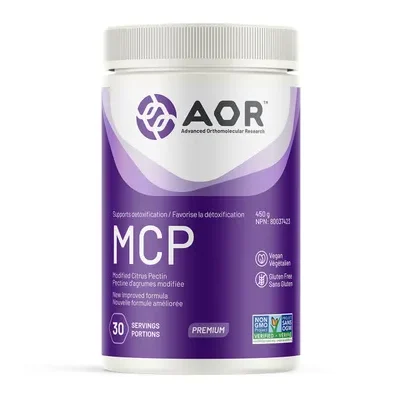
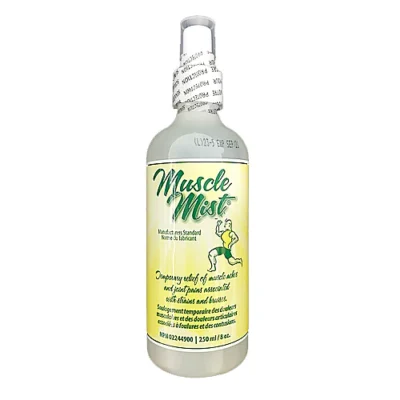
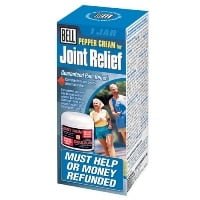
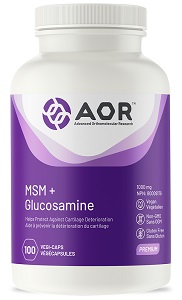
What others are saying
There are no contributions yet.